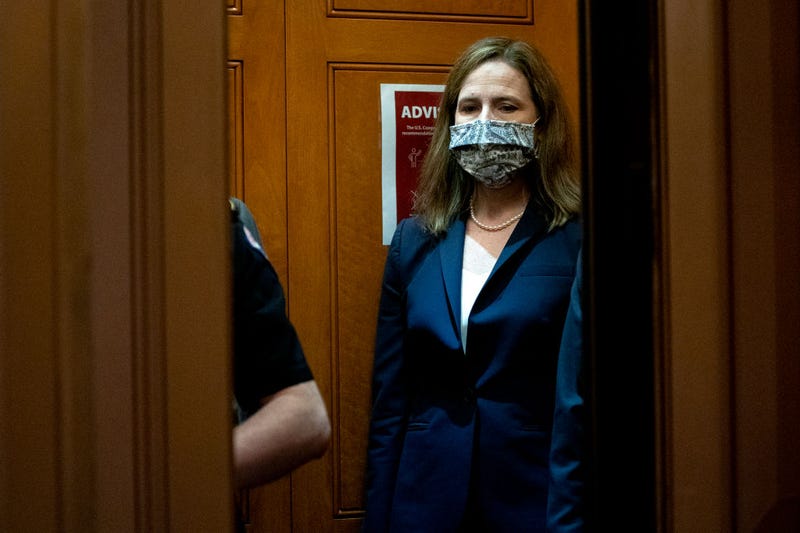
Supreme Court Justice Amy Coney Barrett unilaterally rejected a plea Thursday from a group of eight Indiana University students who sued the school over COVID-19 vaccination requirements.
According to the Washington Post, Barrett was able to make the decision without input from other justices because she is tasked with emergency petitions from that region of the country. She did not give a reason for her decision and did not mention referring the matter to other justices.
Listen to your favorite News/Talk station now on Audacy.
Indiana University has required all students and staff to get vaccinated against COVID-19 since May unless they qualify for a religious or medical exemption. Those who receive exemptions must wear masks in public places and get tested regularly.
Out of the eight students who sued the school as part of Klaassen v. Trustees of Indiana University, six had received a religious exemption and one was eligible but had not applied. However, they still hold that the requirement is a constitutional violation.
“Students are facing IU’s imminent demand that they relinquish their constitutional rights in order to start school this fall,” their application said, according to the Washington Post. It added that the school “is coercing students to give up their rights to bodily integrity, autonomy, and of medical treatment choice in exchange for the discretionary benefit of matriculating at IU.”
The students also contend that the vaccine could be more dangerous to them than contracting COVID-19.
“The risk of serious morbidity and mortality from COVID for those under 30 is close to zero,” their lawyer, James Bopp, wrote. “The known and unknown risks associated with COVID vaccines, particularly in those under 30, outweigh the risks to that population from the disease itself.”
This case is the first regarding COVID-19 vaccine requirements to reach the Supreme Court, said the Washington Post. Before the issue came before Barrett, a federal district judge and a unanimous panel of the U.S. Court of Appeals for the 7th Circuit both rejected the request that the university’s requirement be put on hold while the issue was further litigated.
“Each university may decide what is necessary to keep other students safe in a congregate setting,” Judge Frank Easterbrook wrote in the 7th Circuit opinion supporting the school. “Vaccinations protect not only the vaccinated persons but also those who come in contact with them, and at a university close contact is inevitable.”
Easterbrook and the lower courts used Supreme Court precedent from the 1905 case Jacobson v. Massachusetts to make their rulings.
For that case, the court backed up a government requirement that people pay a fine for refusing to get a smallpox vaccine.
Indiana University’s requirement is mild compared to the 1905 mandate, as it includes the religious exemption and only applies to the school community,
“People who do not want to be vaccinated may go elsewhere,” said Easterbrook, who the Post described as a prominent voice in the conservative legal community.
Although Easterbrook and Barrett, who is also known as a conservative voice, support vaccine requirements, some on the far right were upset at her ruling.
Barrett’s decision to support Indiana University’s requirement comes amid a surge in COVID-19 cases nationwide fueled by variant strains of the virus.
LISTEN on the Audacy App
Sign Up and Follow Audacy
Facebook | Twitter | Instagram


